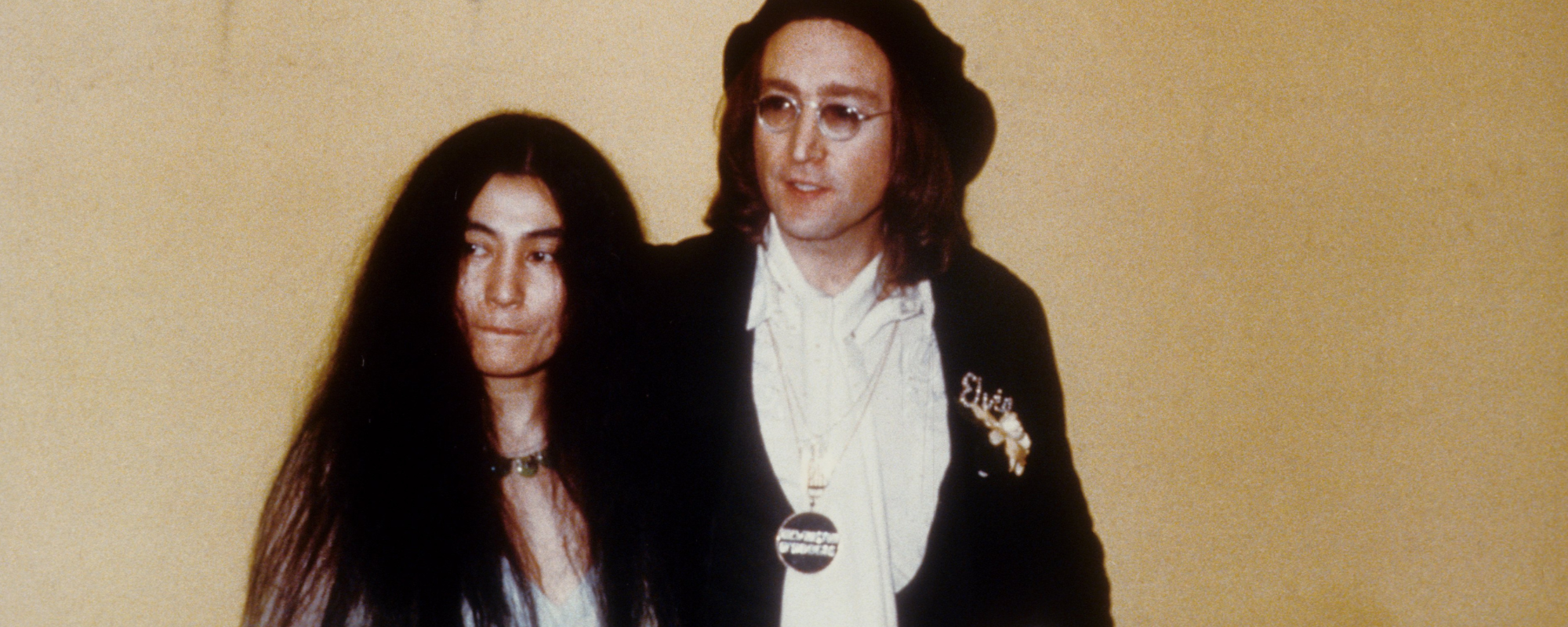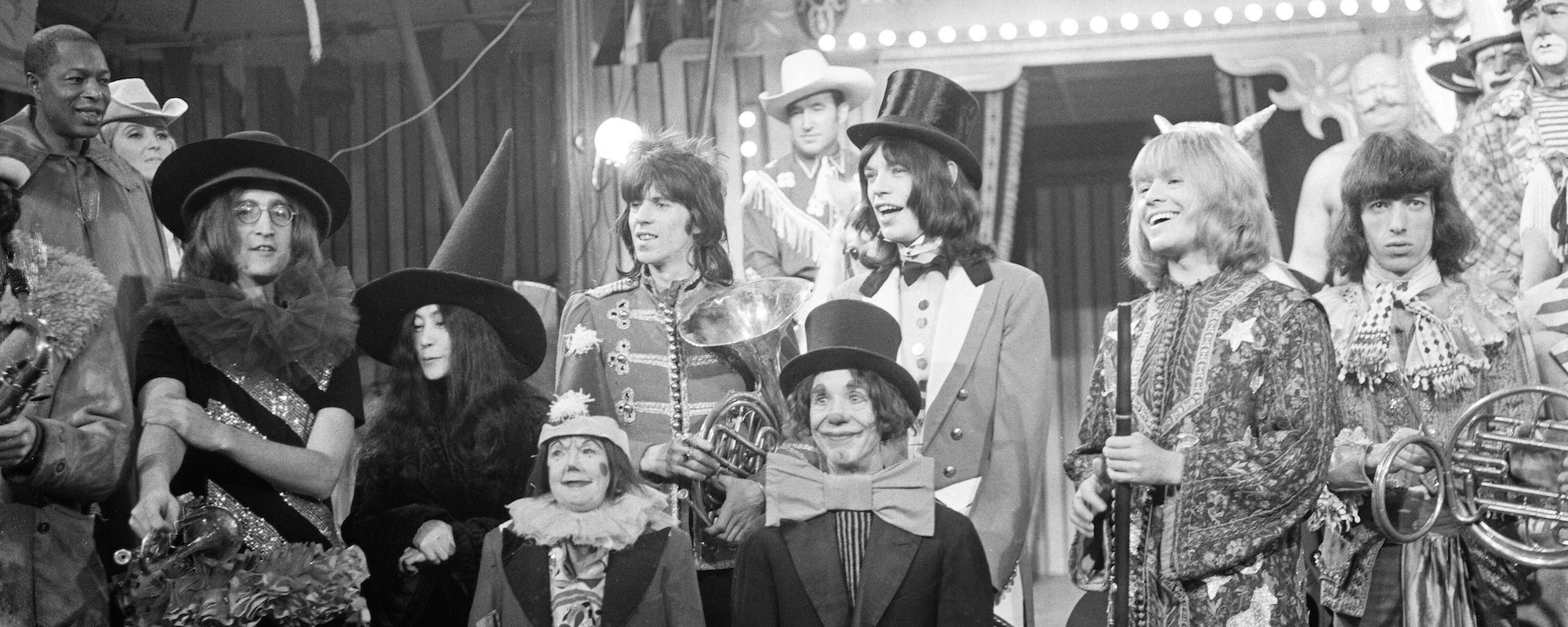When U.S. radio stations banned John Lennon’s track “Cold Turkey,” he was quick to point out that the decision reflected a problem with society, not a problem with his art. Lennon first presented the divisive song to the Beatles as a potential single while the band was finishing their 1969 album ‘Abbey Road,’ but his offer fell flat, and the rest of the band said no.
Videos by American Songwriter
Instead, Lennon released “Cold Turkey” as a Plastic Ono Band single, making it his second solo release post-Beatles. It peaked at a humble No. 30 spot on the Billboard Hot 100 and a relatively more successful No. 14 on the U.K. Singles Chart. However, it didn’t take long for American radio stations to begin banning “Cold Turkey” from the airwaves.
The Controversy Surrounding “Cold Turkey”
While John Lennon had been known to write in nonsensical mumbo-jumbo, a la “I Am The Walrus,” his controversial “Cold Turkey” track was far more literal. He and his second wife, Yoko Ono, had just come down from a short-lived heroin addiction. Lennon describes the harrowing experience in the song, including his body’s physical reactions to the withdrawals.
Thirty-six hours rolling in pain, Lennon sings. Praying to someone, free me again. Oh, I’ll be a good boy, please make me well. I promise you anything. Get me out of this hell. The lyrical content, paired with the song’s abrasive production style, caused several American radio stations to ban “Cold Turkey” for its implicit reference to drugs. In David Sheff’s All We Are Saying, Lennon blamed the national ban for the song’s lukewarm success.
But Lennon’s issue with the radio ban wasn’t that he wanted to sing about drugs and was upset that he couldn’t. On the contrary, he believed he had made a decisively anti-drug song, and the fact that U.S. radio stations couldn’t see that is what peeved him.
John Lennon Said His Banned Song Reflected A Greater Problem
In a 1980 interview with Playboy magazine, Lennon lamented the irony of American radio stations banning an anti-drug song over its references to illegal substances. “They’re so stupid about drugs, you know,” Lennon said. “They’re not looking at the cause of the drug problem: Why do people take drugs? To escape from what? Is life so terrible? Are we living in such a terrible situation that we can’t do anything without reinforcement of alcohol, tobacco? Aspirins, sleeping pills, uppers, downers, never mind the heroin and cocaine. They’re just the outer fringes of Librium and speed.”
Lennon echoed similar sentiments in All We Are Saying, adding that the U.S. was too busy focusing on who was selling or taking drugs. The real focus, Lennon argued, should be on why Americans felt compelled to take the drugs in the first place. “I’m not preaching about [drugs],” the musician insisted (via CheatSheet). “I’m just saying a drug is a drug, you know.”
The ex-Beatle’s feelings about “Cold Turkey” were so strong that he even included the song’s chart position in a public protest against his home country. Lennon and his fellow Beatle bandmates had previously received a Member of the Order of the British Empire award, and in 1969, Lennon returned his M.B.E. to the Queen. “I am returning the M.B.E. in protest against Britain’s involvement in the Nigeria-Biafra thing, against our support of America in Vietnam,” Lennon wrote in a letter he sent with his award (via the New York Times). “And against “Cold Turkey” slipping down the charts.”
Photo by Edward Wing/Daily Express/Hulton Archive/Getty Images













Leave a Reply
Only members can comment. Become a member. Already a member? Log in.